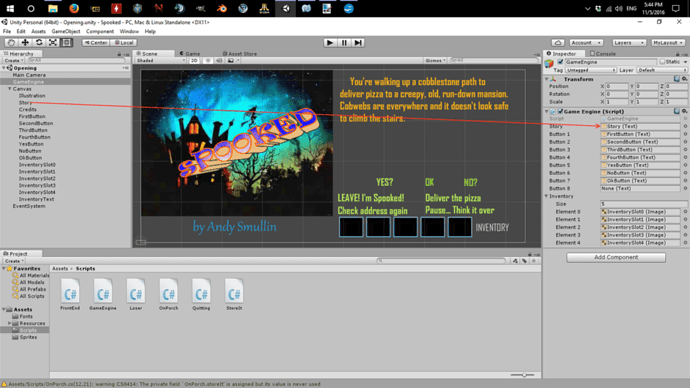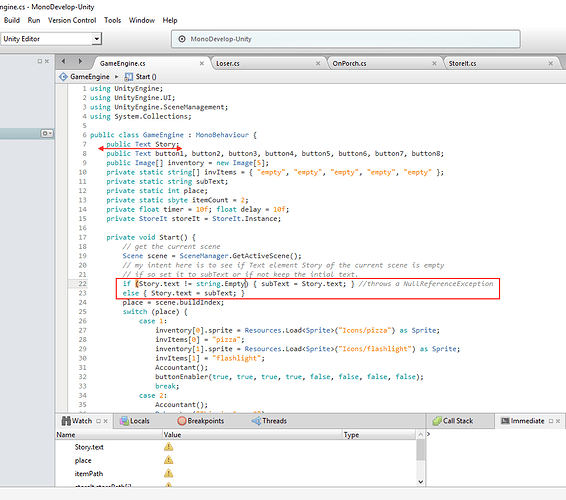If the Story object is definitely in the lose scene, e.g. you could find it in the scene view and you’ve dragged it into that variable then that shouldn’t be causing you a null reference exception. Do you have any default text in the text ui object within the Inspector? For example, if it was for a player’s score I may leave “Score” in it, even if I was over riding this in code, mainly just so I can find the object really easy in the scene view.
Are you able to test just the lose scene, and perhaps comment out the if / else block to check that it either definitely is or isn’t that Story object causing the problem.
It’s obviously hard to check/test remotely without the full project/code etc. I can’t see anything wrong specifically with the code, but I have to make a lot of assumptions this end. If it were me I would want to comment those lines out to see if the error goes away, but this may not be so straight forward if you are requiring them on every scene in order to get to the lose scene. I suppose you could skip over them with another if statement using your place variable (if you moved it above), e.g. if the build index is not the lose scene, run that if / else block. That way it would effectively step over that code when you are on the lose scene. If you still get the null reference exception it shouldn’t be related to the Story object.




